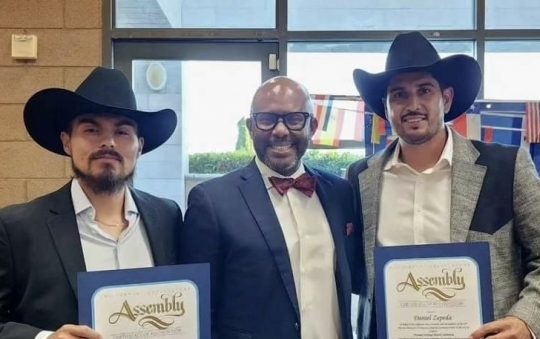
While Los Angeles is well-known as a hub for creativity, technology, and economic opportunity, it also has become home to the nation’s largest homeless population and jail system. Unfortunately, the two populations are often interconnected, and experience a similar set of social and financial hurdles that make it harder to sustain independence.
A 2018 report from the Prison Policy Initiative cited that formerly incarcerated people are almost 10 times more likely to become homeless than the general public. In addition, these groups are linked by their extensive impact on the city’s economy; with homelessness expected to cost the city an estimated $372 million from 2018-2019 and the average cost per prisoner in California exceeding $70,000 annually.
The help that these two vulnerable groups need most is more complex than just financial assistance, and involves hands-on education and resources to get people on their feet on their own terms. For example, transition to housing and employment services must be tailored for different sub-groups like women, youth and the LGBTQ communities to ensure that their unique challenges are addressed. Alternatively, for the formerly incarcerated, successful reentry and education must be coupled with job training, career pathway programs, mental health services, education and legal counsel.
The good news is that there’s hope.

Two Los Angeles nonprofits, The Midnight Mission and the Anti-Recidivism Coalition (ARC), are tackling these hurdles by finding ways to give individuals another chance at self-sufficiency through sustainable life changes and a holistic approach to help their clients skillfully rejoin and contribute to society.
Established in 1914 as a meal service for the Skid Row community, The Midnight Mission singlehandedly serves over one million meals per year, houses up to one thousand individuals each night, offers recovery and aftercare programs and much more. The programming is also flexible and responsive to a growing and changing homeless population. Notably, the Crisis & Bridge Program was launched in response to a staggering increase in homeless women, and is now the first and largest of its kind in Skid Row and transitions 250 homeless participants to housing each year.
“The Midnight Mission believes that all of its program participants have the potential to be self-sufficient, and understands that the best path to self-sufficiency includes helping people to create, or recreate, a social safety net of friends, family and connections to rely on for problems large and small,” said Mike Arnold, President & CEO. “This net is built through access to job training and placement resources, sobriety support groups, domestic violence counseling, legal assistance, physical and mental health care, housing opportunities and other important services.”
The Anti-Recidivism Coalition has impacted the lives of over 1000 formerly incarcerated individuals and prevented over 90% of them from returning to prison by offering mentoring, job training, mental health services, education, legal counsel and more. To serve an additional 250 formerly incarcerated individuals, ARC has plans to grow its reentry and education offerings.
“We believe in the power of second chances and the worth of people who have been incarcerated,” said Shaka Senghor, Executive Director of the ARC. “We provide pathways to union jobs in the trades and entertainment field because we know that if someone has a job but hasn’t dealt with various forms of trauma, it’s difficult to be the healthiest version of themselves. Conversely, if a person is doing the hard emotional work, but cannot find a job, success will be difficult. Over 60% of ARC’s staff is system-impacted. For people who were incarcerated to see others who served time thriving in freedom provides inspiration.”
Nonprofit organizations like Anti-Recidivism Coalition and The Midnight Mission stand out for their forward-thinking approach to service. Their unprecedented programs and services address each individual’s challenges to create broad-scale impact.

The private sector can also play an important role in the creation of long-term solutions to homelessness and recidivism by supporting the expansion of permanent supportive housing, workforce development, and other services that meet the needs of these vulnerable populations. In fact Bank of America Merrill Lynch financed the construction of hundreds of new permanent supportive housing units in Los Angeles, along with deploying approximately $1.2 million in philanthropic capital to local nonprofits helping Angelinos break the cycle of poverty.
Given the highly impactful work both The Midnight Mission and ARC are providing in Los Angeles, each organization was recently named as a 2018 Bank of America Neighborhood Builder award recipient, the bank’s largest investment in nonprofit leadership that includes $200,000 in grants for each organization over two years to help further scale their programs, along with comprehensive leadership development resources for its executive director and an emerging leader.
Bank of America believes that by building cross-sector relationships with the nonprofit community, the most complex and harmful challenges facing Angelinos can be mitigated, and ideally, solved with a clear and shared purpose. Empowering these organizations to do what they do best is not only a humanitarian issue, but also smart economic strategy because it enables entire communities to thrive.
Change through unity is the way forward. Here in Los Angeles we have the vision, drive and focus necessary to create a better future for generations to come.







